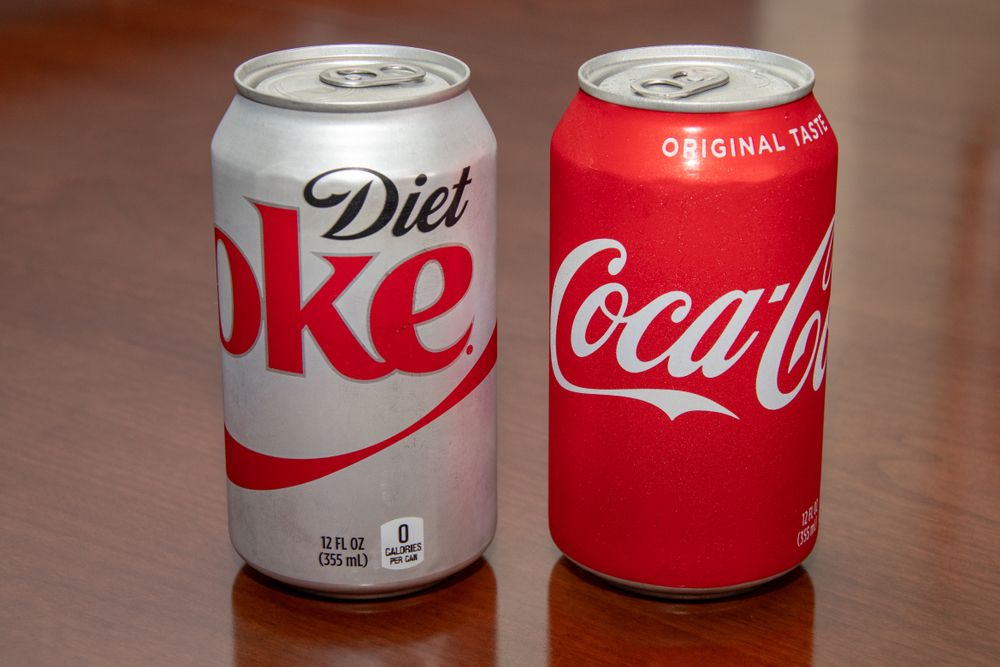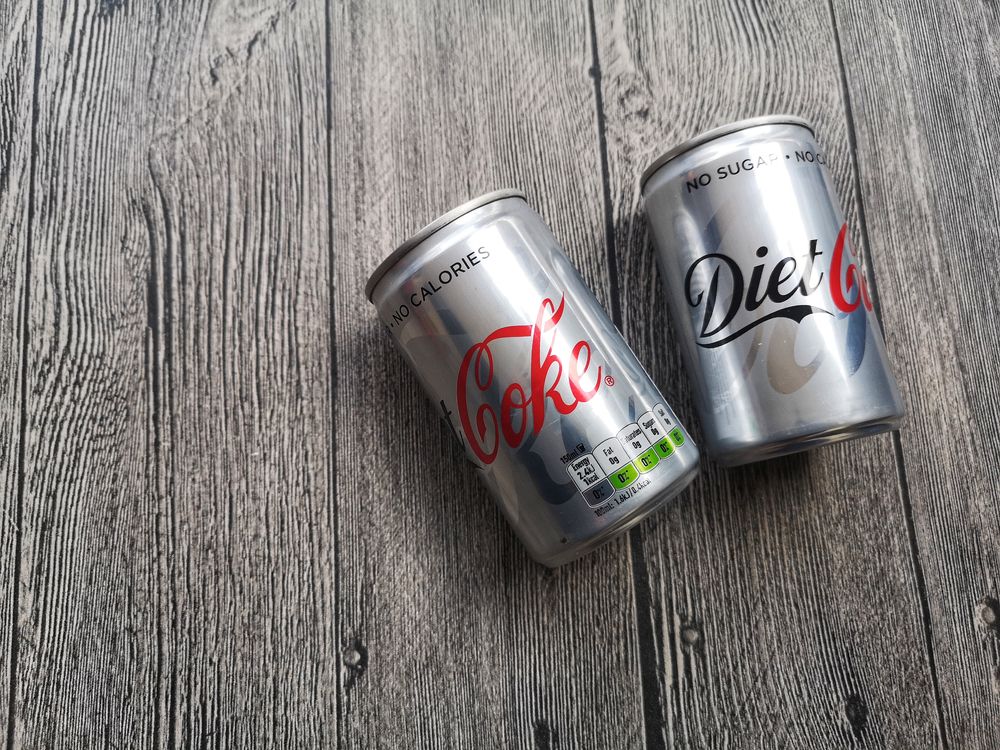
Coca-Cola remains the most popular soda worldwide, according to the latest Statista report. While sales of sugary sodas haven't completely fizzled out, many are opting for Diet Coke and Coke Zero Sugar to satisfy their thirst and curb sugar cravings.
These two sugar-free options offer the classic Coke taste without the calories, but they've ignited debates among soda enthusiasts over which one is the ultimate favorite.
That's why we decided to put these two popular diet sodas to the test, comparing their flavors side by side. We also consulted two registered dietitians to analyze their nutritional and ingredient profiles. Here's a complete breakdown of how Diet Coke and Coke Zero Sugar stack up.
The Backstory: How These Sodas Came to Be
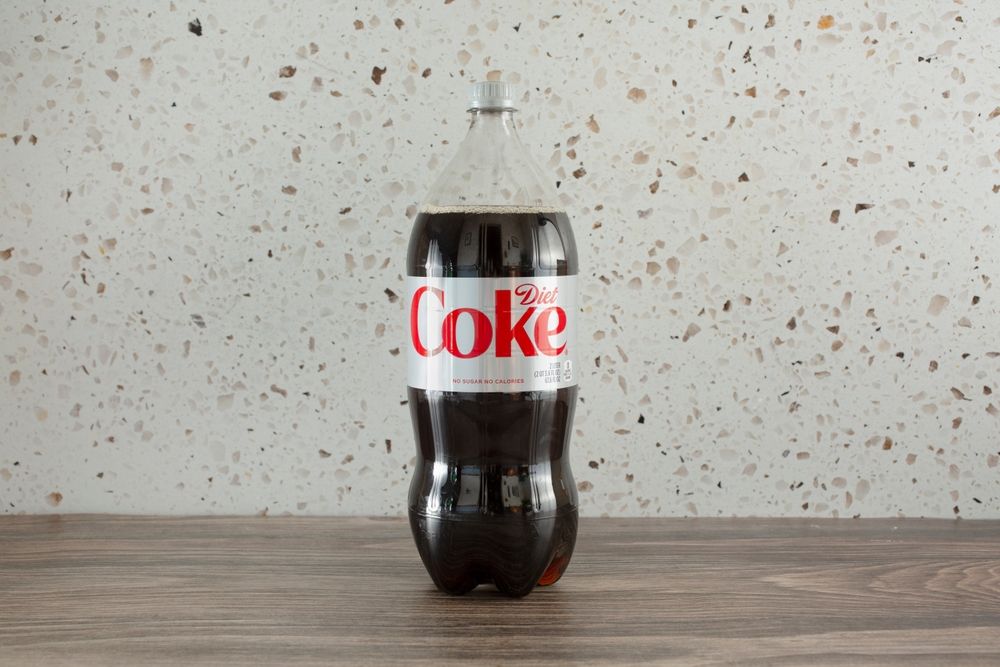
The original Coca-Cola was created by pharmacist John Stith Pemberton in 1886 in Atlanta, Georgia. By the 1960s, as the obesity epidemic began to emerge and diet culture gained traction, consumers started seeking sugar-free alternatives, prompting a need for Coca-Cola to evolve.
The idea of a "diet" Coke circulated among executives for nearly two decades before the brand introduced it in the summer of 1982. Diet Coke was marketed as a "great-tasting soft drink that happens to have one calorie," rather than just another diet drink, according to Coca-Cola's website.
Just a year after its launch, Diet Coke became the top-selling diet soft drink in the U.S. From 1984 to 2010, it ranked just behind Coca-Cola and Pepsi as the third most popular soft drink in the country.
Even with Diet Coke's widespread success, Coca-Cola continued to innovate. In 2005, the company introduced another fan favorite: Coca-Cola Zero, which offered the classic Coke taste without sugar or calories. In 2017, the brand revamped the recipe, packaging, and name to create today's Coke Zero Sugar. According to a Coca-Cola press release, "We've used our in-house innovation capabilities to make the great taste of Coke Zero even better and a lot like a Coke. It's delicious, refreshing, and our best-tasting zero-sugar Coca‑Cola yet."
Nutritional Comparison: Diet Coke vs. Coke Zero
Diet Coke
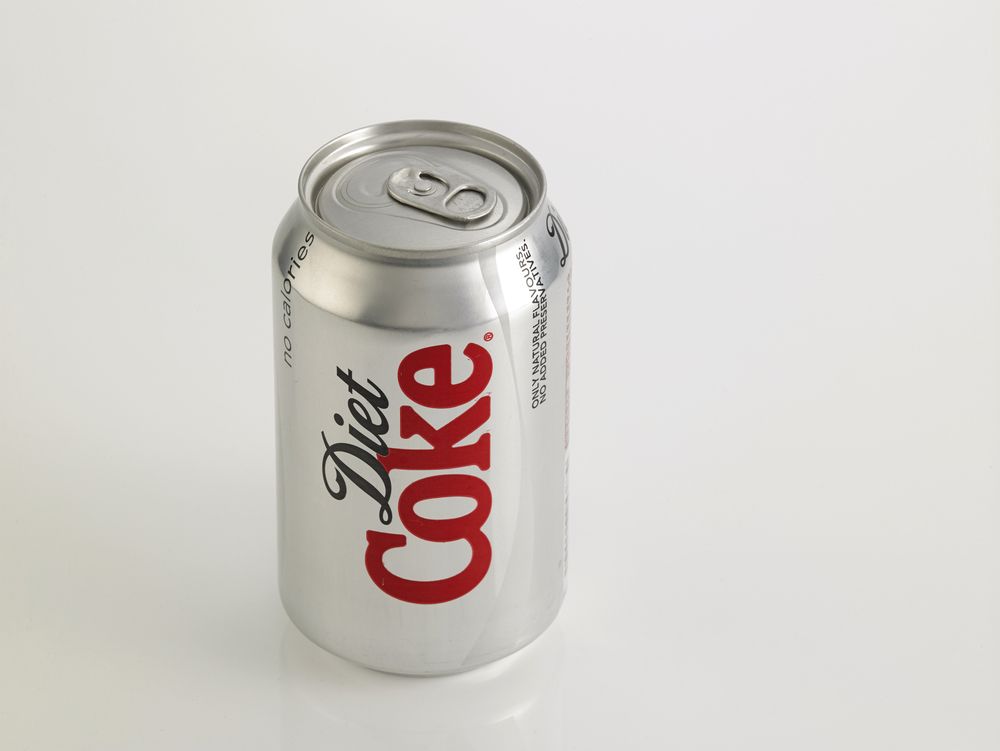
Nutrition (Per 12-oz can):
Calories: 0
Sodium: 40 mg (2% DV)
Carbs: 0 g (Sugar: 0 g)
Caffeine: 46 mg
Coke Zero Sugar
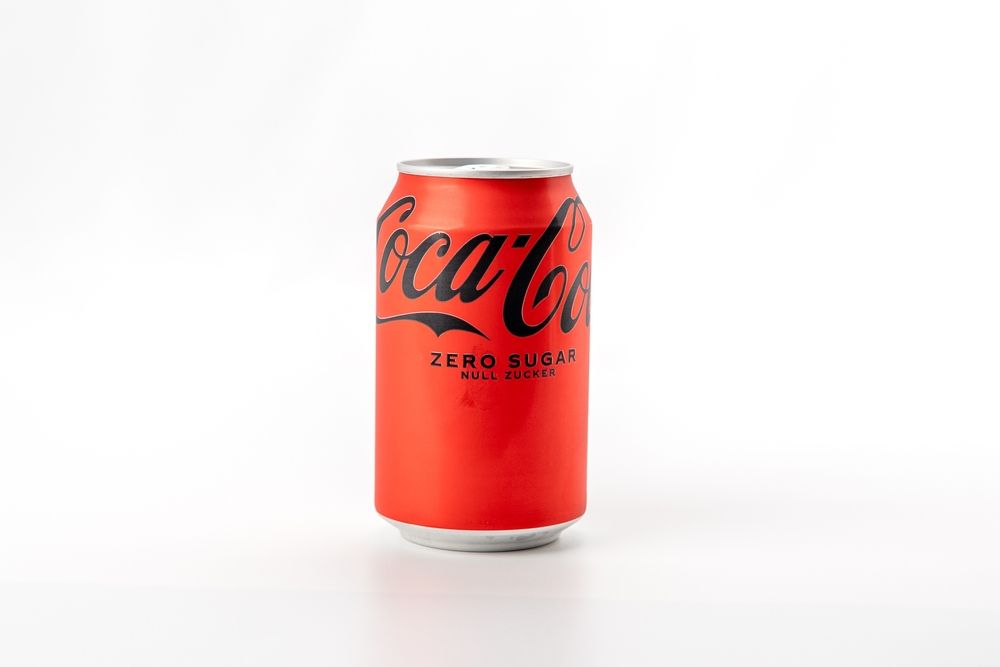
Nutrition (Per 12-oz can):
- Calories: 0
- Sodium: 40 mg (2% DV)
- Carbs: 0 g (Sugar: 0 g)
- Caffeine: 34 mg
At first glance, both Diet Coke and Coke Zero Sugar look nutritionally identical, with nearly everything at zero except for sodium. However, a closer look reveals key differences in phosphorus and caffeine content.
Phosphorus Content
Colas typically contain phosphorus in the form of phosphoric acid. "Phosphoric acid acts as both a preservative and a way to lower the product's pH to extend shelf life, enhance flavor, and maintain carbonation," explains dietitian Michelle Rauch, MSc, RDN.
Diet Coke contains 27 milligrams of phosphorus per serving, while Coke Zero Sugar contains 54 milligrams—double that amount.
Why does this matter? "Phosphorus and calcium have an inverse relationship," says Rauch. "Excess phosphorus can reduce calcium levels in the body, potentially leading to bone loss over time. It can also hinder the absorption of other key minerals like iron, zinc, and magnesium."
Those with kidney disease, individuals undergoing hemodialysis, or those at risk for osteoporosis should be mindful of their phosphorus intake and may want to limit or avoid these sodas.
Caffeine Content
Both Diet Coke and Coke Zero Sugar contain caffeine unless you choose the caffeine-free versions. Diet Coke has 46 milligrams of caffeine per 12-ounce can, while Coke Zero Sugar contains 34 milligrams. This means Diet Coke has over 30% more caffeine than Coke Zero Sugar.
The FDA advises limiting caffeine intake to 400 milligrams per day, which equals around 12 cans of Coke Zero Sugar or nine cans of Diet Coke.
While 34 to 46 milligrams of caffeine is less than the average cup of coffee (which has around 90 to 100 milligrams), it's still enough to keep you awake, so it might be best to avoid these sodas in the evening.
Ingredient Comparison
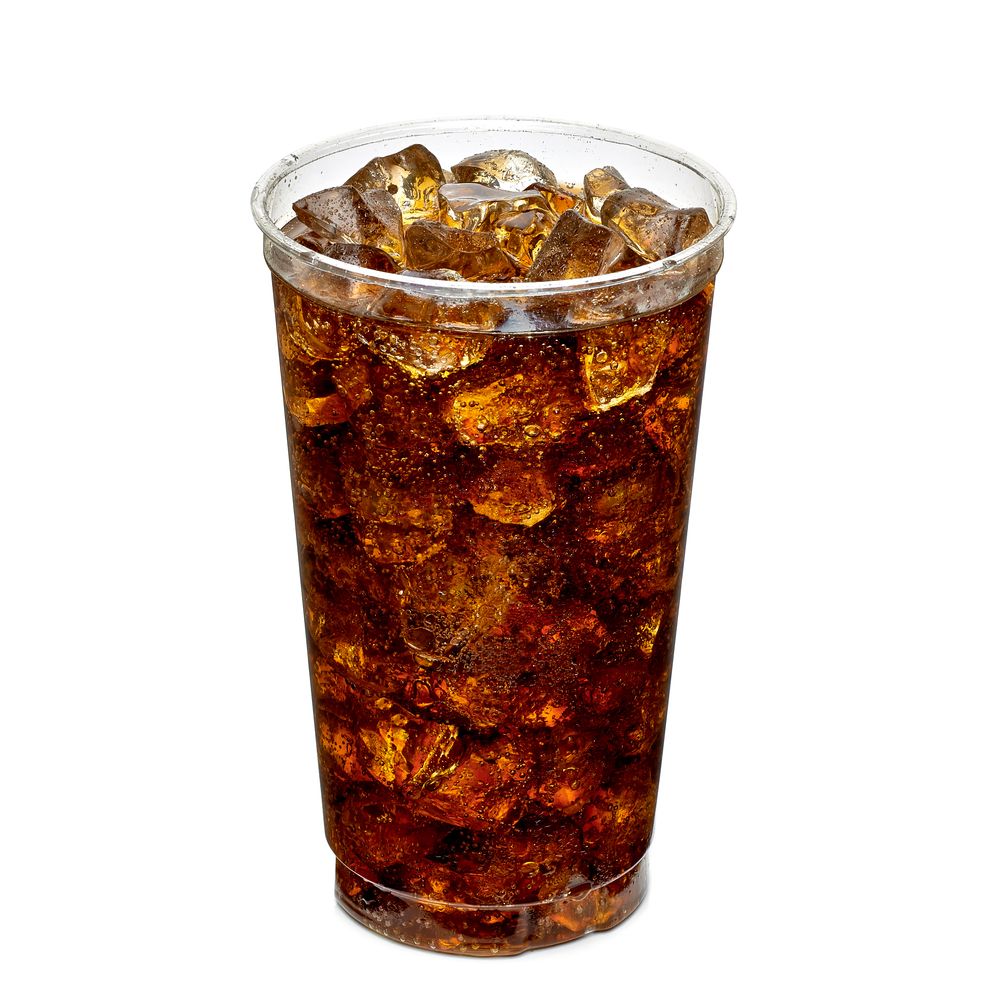
The key difference between Diet Coke and Coke Zero Sugar lies in their artificial sweetener combinations. Both contain aspartame, but Coke Zero Sugar also includes acesulfame potassium (Ace-K).
Acesulfame Potassium
Acesulfame potassium is a non-nutritive sweetener (NNS) that has zero calories and is approximately 120–200 times sweeter than table sugar. Due to its intense sweetness, it's used in small amounts and often combined with other sweeteners to closely mimic sugar's taste, according to Lisa Andrews, MEd, RD, LD, of Sound Bites Nutrition in Cincinnati, Ohio.
The FDA considers acesulfame potassium safe within an acceptable daily intake (ADI) of 15 milligrams per kilogram of body weight, which translates to about 23 packets of sweetener or 5 to 6 cans of diet soda per day.
Aspartame
Aspartame, another NNS, is made from aspartic acid and phenylalanine, two amino acids found naturally in food and the human body. According to Andrews, the phenylalanine in aspartame is modified slightly to create its sweeter taste.
The FDA's ADI for aspartame is higher than that of acesulfame potassium, set at 50 milligrams per kilogram of body weight. For a 150-pound person, this equates to around 18 to 19 cans of diet soda daily.
Safety and Potential Risks
Both sweeteners are generally considered safe in moderation, though some studies have raised concerns.
A 2022 review in Nutrients suggested that high intake of artificial sweeteners may affect gut microbiota, potentially influencing appetite, digestion, and the risk of metabolic conditions such as cardiovascular disease and obesity.
For people with diabetes, aspartame and other artificial sweeteners have been linked to a higher risk of colorectal and stomach cancer, though no overall link to cancer was found in the general population, according to a 2023 study. However, Andrews notes that these findings involved a small number of cases, and more research is needed for confirmation.
Excessive consumption of acesulfame potassium may also pose risks. A 2024 study suggested a possible connection between high intake and early puberty in adolescent girls. Additionally, a 2022 French cohort study found a link between high consumption of both sweeteners and increased cancer risk.
"Sweeteners appear to pose more risks for those with diabetes," Andrews adds, citing research on an elevated risk of liver cancer in this group.
Pregnant women should avoid aspartame due to the risk of phenylketonuria (PKU), a genetic condition where the body cannot process phenylalanine.
Final Thoughts on Artificial Sweeteners
Despite some mixed research on the health impacts of artificial sweeteners, including inconsistencies and reliance on diet recall data, "the FDA has declared non-nutritive sweeteners as safe when consumed in moderation," says Andrews.
Taste Test: Diet Coke vs. Coke Zero vs. Original Coke
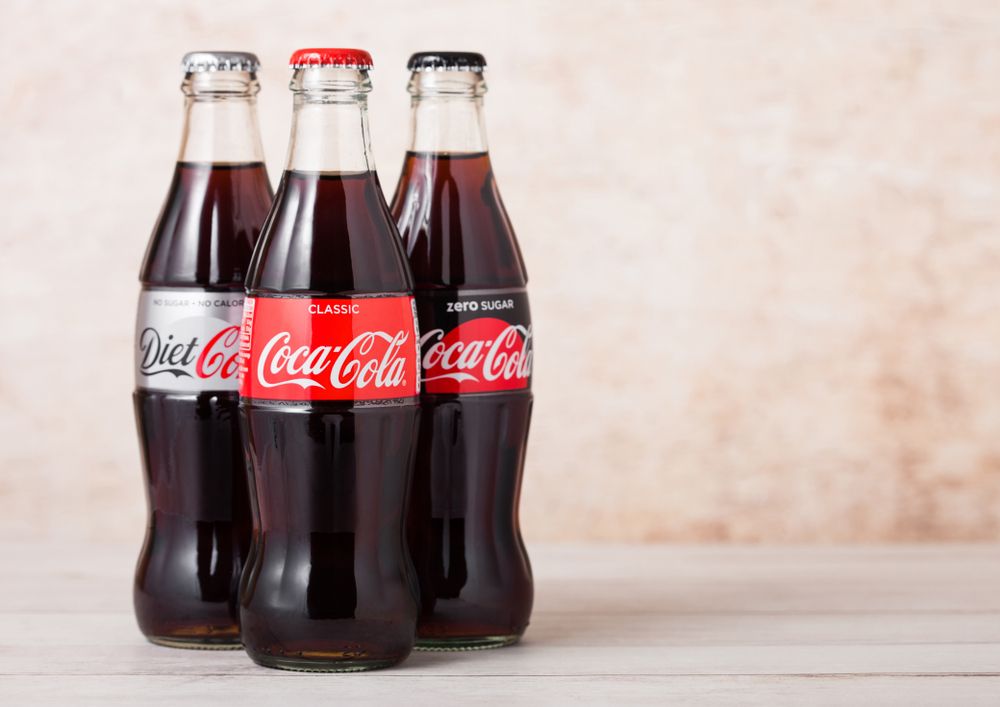
No Coke comparison is complete without a taste test, so we grabbed bottles of Diet Coke, Coke Zero Sugar, and the original Coca-Cola to see how they stack up.
Original Coca-Cola
The classic Coke has a signature flavor that’s almost metallic—the iconic taste everyone associates with Coke. It delivers a bright sweetness with caramel undertones that linger long after the first sip. It's a flavor that's hard to replicate and sets a high bar for other sodas.
Diet Coke
Next, we cracked open the bottle of Diet Coke. After one sip, it was clear it didn't deliver that familiar Coke flavor. It tasted bland and watered down, almost like a knock-off version of Coca-Cola. The flavor ends abruptly, requiring continuous sips to keep it going, but its mineral-like finish and strong artificial aftertaste make it less enjoyable. Hard pass.
Coke Zero Sugar
From the first sip, Coke Zero Sugar closely mimicked the original Coca-Cola, with a fizzier texture than Diet Coke and a richer, more complex flavor. It lacks the unpleasant mineral finish of Diet Coke. However, on subsequent sips, it seemed slightly sweeter than the original, almost as if Coke Zero Sugar was trying a bit too hard to replicate Coca-Cola. Those unaccustomed to artificial sweeteners might find it too sweet, overpowering other flavors in the drink.
That said, it's a far more enjoyable option than Diet Coke and a great choice for anyone wanting a sugar-free soda.
Diet Coke vs. Coke Zero Sugar: Which Tastes Better?
After tasting all three, each has a distinct flavor profile. Original Coca-Cola shines with its bright sweetness and caramel notes, which are hard to replicate. Diet Coke, however, falls short with its diluted taste and lingering artificial aftertaste, making it the least appealing of the group.
Coke Zero Sugar stands out by closely resembling the original Coke, with a richer, more complex taste. While some may find it slightly too sweet, it’s still the superior option among sugar-free sodas. In the end, Coke Zero Sugar easily beats Diet Coke as the better-tasting choice.
Is One Healthier Than the Other?
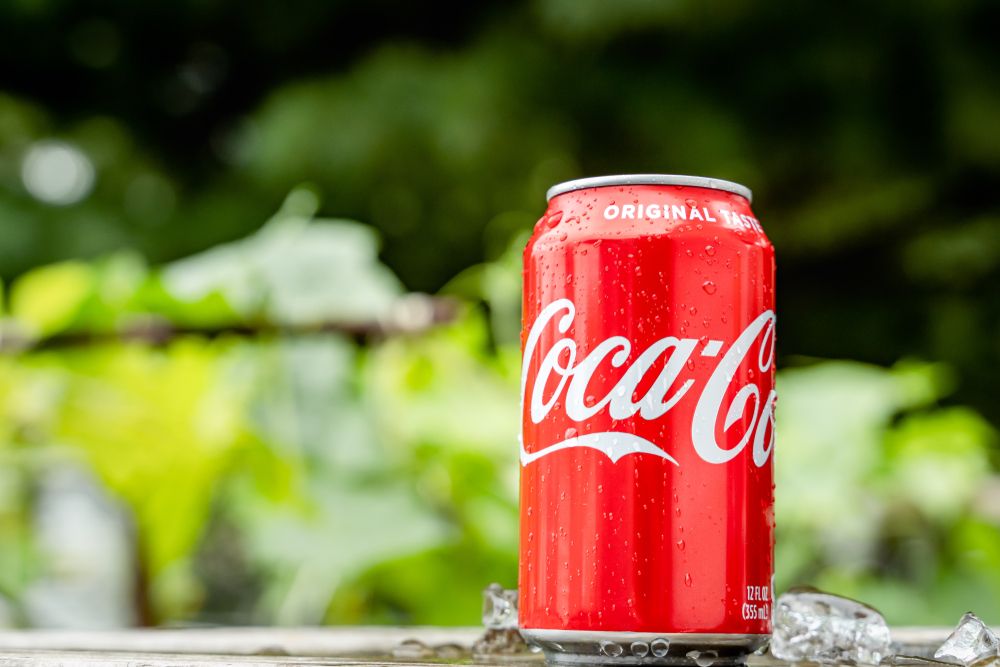
All things considered, it's safe to say that neither Diet Coke nor Coke Zero Sugar is inherently healthier than the other. "A few diet sodas per day won't significantly impact your health," says Andrews. However, drinking regular Coke daily could. A single can of regular Coke contains 39 grams of added sugar, surpassing the American Heart Association's recommended daily limit.
That said, it's important to recognize that neither Coke Zero Sugar nor Diet Coke can be classified as a "healthy" beverage. Both contain artificial sweeteners, which may carry potential health risks for certain individuals. As Andrews explains, it ultimately comes down to "picking your poison" based on taste preference.
Based on our taste test, Coke Zero Sugar is the clear favorite. Although it's noticeably sweeter than regular Coke, it still delivers the richness and complexity you'd expect, making it a far more enjoyable option than Diet Coke.
The Bottom Line
If you regularly drink sugar-sweetened Coke, both Rauch and Andrews recommend switching to either Coke Zero Sugar or Diet Coke to cut down on your sugar intake. "The health risks associated with sweetened beverages are much more documented than those of diet drinks containing artificial sweeteners," says Andrews.
However, if you're not a frequent soda drinker, it's best not to make diet sodas a habit. "An occasional Diet Coke or Coke Zero Sugar won't harm you," Rauch explains. "But if you're drinking one or more daily, it's beneficial to replace it with another low- or no-calorie option, like water (flavored with fruit slices), naturally flavored sparkling water, or unsweetened iced tea."

